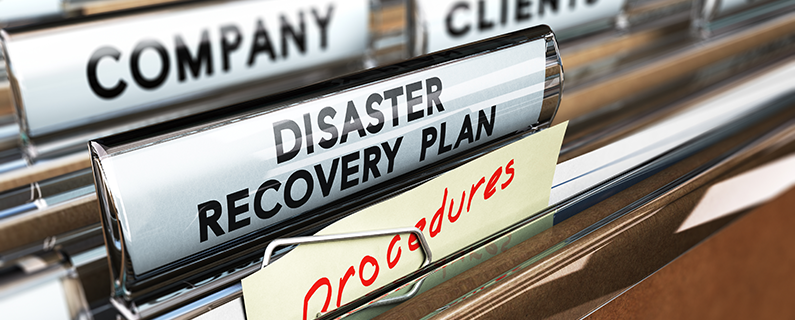
Are business owners optimists or pessimists? To be successful you have to believe things will work out, but you also need to consider what can go wrong. An important part of that consideration is your disaster planning. Let’s face it, accidents will happen. And when they do, even small incidents can cause major headaches for small business owners. Fires, floods, burglaries and computer meltdowns are just a few of the mishaps which can cause business interruptions.
Are you prepared?
I have seen statistics that say anywhere from 25 – 75 percent of businesses that suffer a disaster fail to reopen or close soon after. While the stats may vary, the general consensus is that a well thought out recovery plan matched with appropriate insurance makes the difference between survival and business extinction.
What should your disaster planning process include?
- Computer Backup – These days the heart of your business lives on your computer. Contracts, financial records, project plans all live in a virtual state on your desktop. So what happens if you can’t access your desktop or server? Don’t wait to find out. Have a robust data back up plan in place. You have lots of options ranging from a second on-site server to sending copies of all your files to the cloud every night. Which plan is right for you? Spend some time with an IT professional. Talk about how often you update critical files which are integral to your business and they will make an appropriate recommendation.
- Equipment Replacement – Beyond restoring your data, you need to plan for equipment replacement. Talk to your insurance agent to be sure you have enough coverage to replace furniture, equipment, inventory and other assets. Take the time to inventory all the assets in your building. Have a list of important equipment, serial numbers, purchase date and even photos. This will really simplify the process of filing that insurance claim.
- Temporary Location – Where will you and your team work if your building is not accessible? Putting systems in place for employees to work remotely is helpful even if it is only a day or two interruptions caused by inclement weather. You just don’t want to test those systems for the very first time when something big goes wrong.
- Funding operations – Disasters have a way of piling up. Not only will you need to deal with the things listed above, you may incur additional expenses for moving or damages caused by missed deadlines. Business continuity insurance will help cover the other unexpected costs.
- Customer Care – In some cases, you won’t be able to complete a project because of a serious interruption to your operations. Having a relationship with another firm who can take care of your customers in the short term will allow you to preserve the customer relationship for the long term.
Disaster planning is not a set it and forget it kind of process. If you are smart, you will revisit your crisis plan every year. Why? Because as your business grows, your risks grow as well. You may be lucky and never have a fire, flood, burglary or another disaster. But a little disaster planning now will save you lots of headaches down the road if you do.
